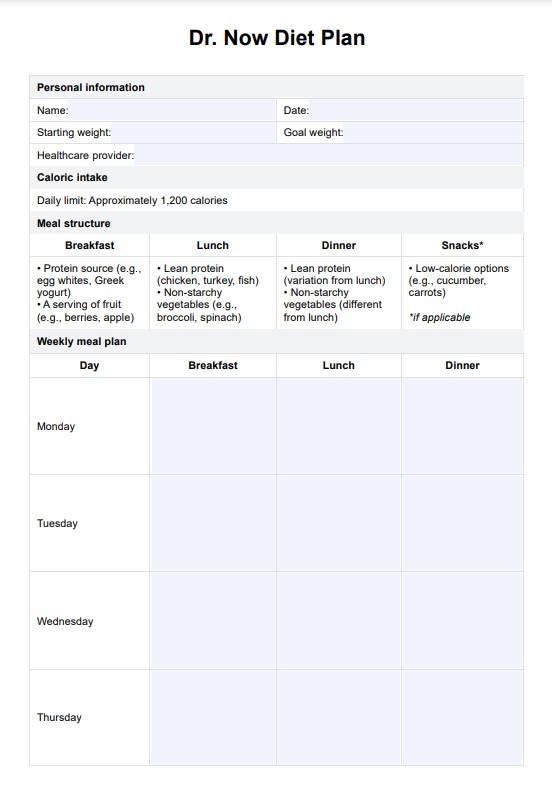The Dr. Now Diet Plan is a low-calorie, high-protein diet designed primarily for extreme weight loss, especially in obese individuals preparing for bariatric surgery. It typically restricts daily caloric intake to around 1,200 calories.

Dr Now Diet Plan
Learn more about Dr. Nowzaradan's diet plan, ideal for those who are candidates and who will undergo bariatric surgery. Use our template for easy reference.
Use Template
Dr Now Diet Plan Template
Commonly asked questions
This diet is intended for individuals with significant obesity, often as a prerequisite for bariatric surgery. It should only be used under medical supervision, particularly by those who need to lose weight quickly for health reasons.
No, it's not safe. Due to its highly restrictive nature, the Dr. Now's diet plan should only be followed under the guidance of healthcare professionals.
EHR and practice management software
Get started for free
*No credit card required
Free
$0/usd
Unlimited clients
Telehealth
1GB of storage
Client portal text
Automated billing and online payments











